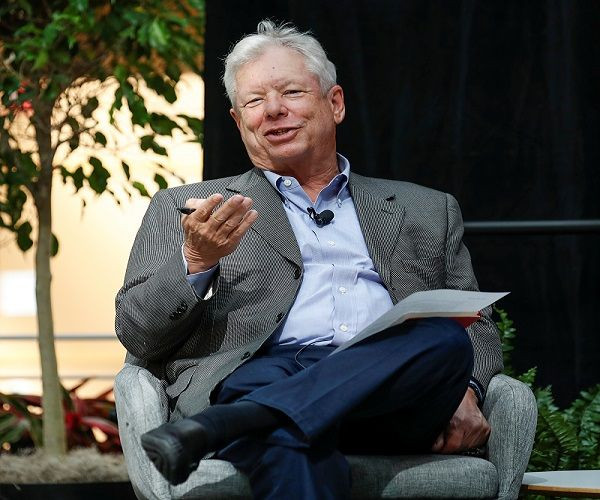Lessons for business leaders, ordinary people from Nobel Prize winner Richard Thaler

Behavioural economist Richard Thaler won the 2017 Nobel Prize in Economics on Monday amid a career spent uncovering how humans are not always rational beings. His book chronicles people’s financial misbehaviour, and his study is different from traditional economic theory.
In a video on the University of Chicago’s website, Thaler talked about his book. It is “about the way actual people behave as opposed to the way economists think people behave – (like) people who are highly rational, unemotional creatures- kind of like Spock in the Star Trek TV series,” he explained.
Thaler said humans do not always choose the right thing, citing overeating and exercising too little. He added that many have trouble saving enough for retirement.
One example of financial miscalculations based on theories Thaler has written about is the “hot-hand fallacy.” Thaler explained that one “classic error” people make is thinking that whatever is happening now is going to continue to happen in the future.
Another theory is called the Endowment Effect. It is when humans place greater value on things they own than things they do not own. The drawback of this is that people usually make the mistake of holding on to shares of an asset, like a stock that is tumbling, because of personal attachment.
Thaler’s study has challenged the idea that every dollar is the same in a person’s mind, USA Today notes. His work therefore shows that humans perform mental accounting.
An example is when a person earmarks money for specific uses or goals, like food for the week, entertainment, saving for retirement and paying the mortgage. As such, humans come up with financial decisions based on how spending will impact small little accounts instead of the overall financial picture.
The benefit of mental accounting is that it can help avoid over-spending. But Woody Dorsey, who heads behavioural finance firm Market Semiotics, said this strategy also work against people.
For instance, a person who has $10,000 sitting in the bank may feel rich then go out and buy something on a credit card that runs his balance up to $10,000. Dorsey said that person, therefore, may not be as rich as he thinks he is.
Thaler developed the idea of “Save More Tomorrow,” a retirement plan by which employees are asked if they want a portion of future wage increases to be directed to savings. He is now a professor of behavioural science and economics at the University of Chicago’s Booth School of Business.
Nobel Prize/YouTube




















